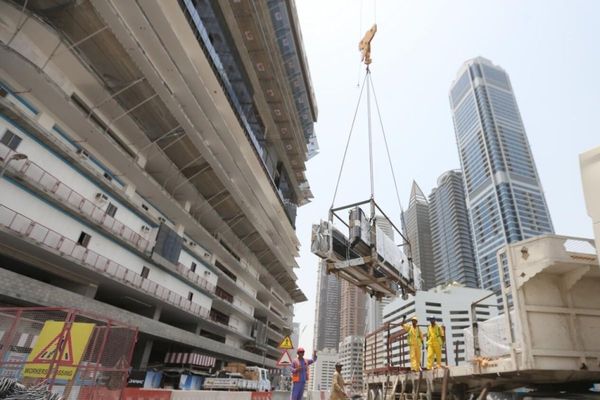At present, the work permit is granted for a duration of two years, and it is strictly prohibited for individuals to engage in employment within the country without possessing a valid document.
The proposal to extend the duration of work permits from two years to three has been approved by the Federal National Council (FNC), which serves as the UAE's parliamentary body. The decision was made in response to a recommendation from an FNC committee aiming to alleviate the financial burdens associated with acquiring work permits.
Presently, work permits in the UAE are typically issued for a period of two years by the Ministry of Human Resources and Emiratisation. It is strictly forbidden for individuals to engage in employment within the country without possessing a valid work permit.
The FNC Committee on Financial, Economic, and Industrial Affairs presented a report suggesting the extension of the work permit duration to three years. The report also included additional recommendations, such as waiving work permit fees for job changes. Another approved recommendation by the FNC was that workers should remain with an employer for a minimum of one year after the probationary period, although this requirement can be waived with the employer's consent.
Inspection visits
The Ministry of Human Resources and Emiratisation (MoHRE) reported to the FNC that it conducted more than 72,000 inspection visits throughout the country this year. Among these visits, approximately 2,300 were specifically focused on suspected cases of false Emiratisation. As a result, around 430 cases were identified, and some of them were referred to the public prosecution for further action.
In January 2023, the MoHRE referred 20 companies to public prosecution for violating Emiratisation policies in the previous year. Additionally, the Public Prosecution had ordered the imprisonment of the owner and manager of a private company for deceiving 296 Emirati trainees as part of the Nafis program, where money was taken from them.
There is a federal law that mandates private sector companies to increase the representation of Emiratis in their workforce. By the end of the last year, companies with 50 or more employees were required to have a minimum of 2 percent Emiratis in skilled positions. This year, by June 30, they are obligated to increase this representation by an additional 1 percent. By the end of the year, the target is to have 4 percent of Emiratis in skilled roles.
Flexible policies
During the FNC meeting last week, Abdulrahman Al Awar, Minister of Human Resources and Emiratisation, highlighted three key policies that protect employers from risks:
- Worker protection insurance system: Employers are mandated to provide insurance coverage to protect workers in the event of company insolvency or the inability to pay dues. Over 96 percent of registered workers are currently covered under this scheme.
- Wage protection system: It ensures timely and secure payment of employee salaries. This system requires companies and establishments to fulfill wage obligations through authorized financial institutions.
- Unemployment insurance: More than 2 million people, including 40,000 Emiratis, have subscribed to the unemployment insurance scheme. Eligible workers in the UAE have to subscribe to the scheme before June 30 to avoid penalties. It’s an ultra-low-cost security net that protects workers if they lose their jobs.
News Source: Khaleej Times









